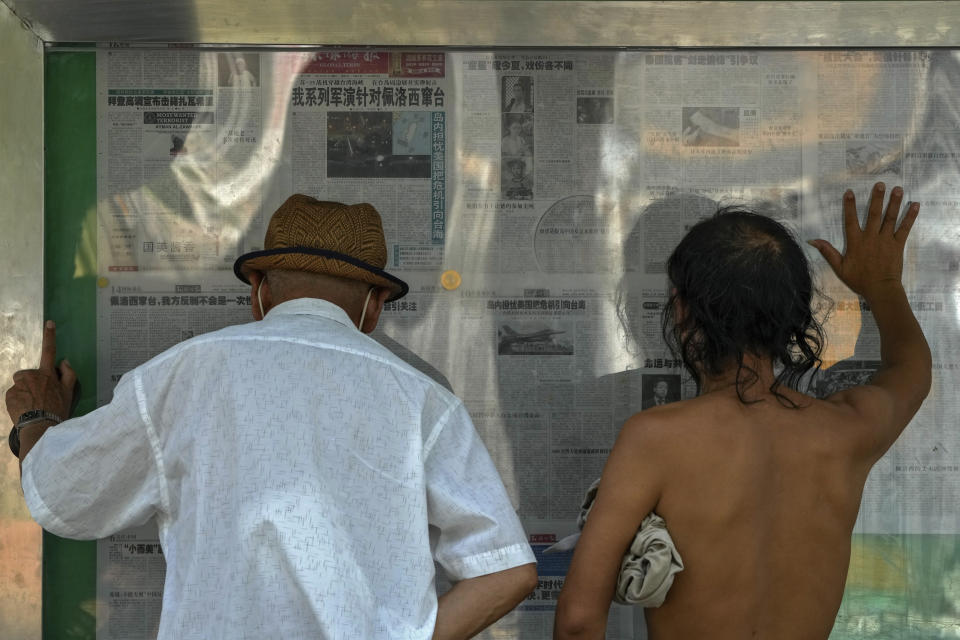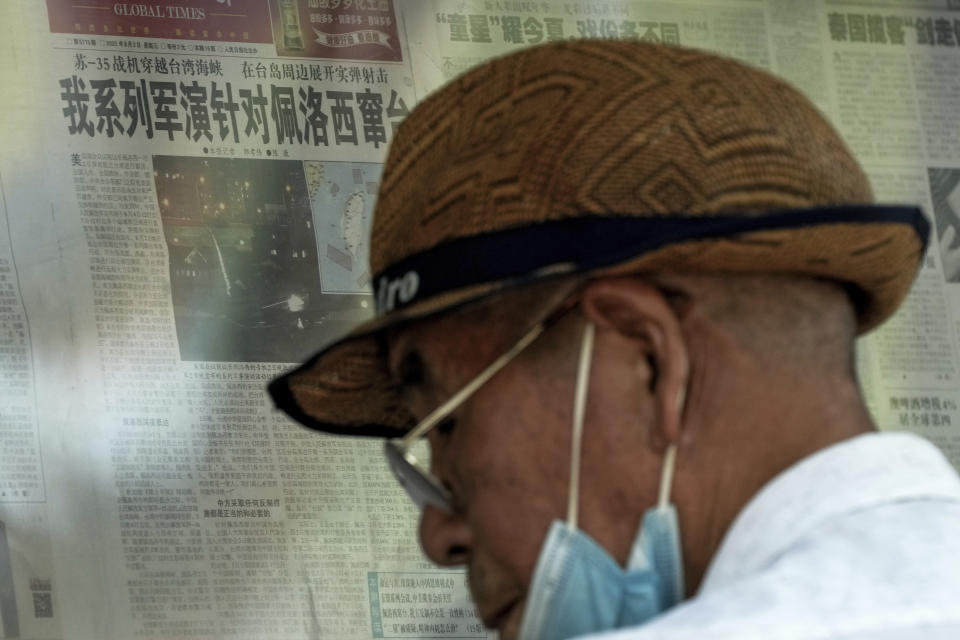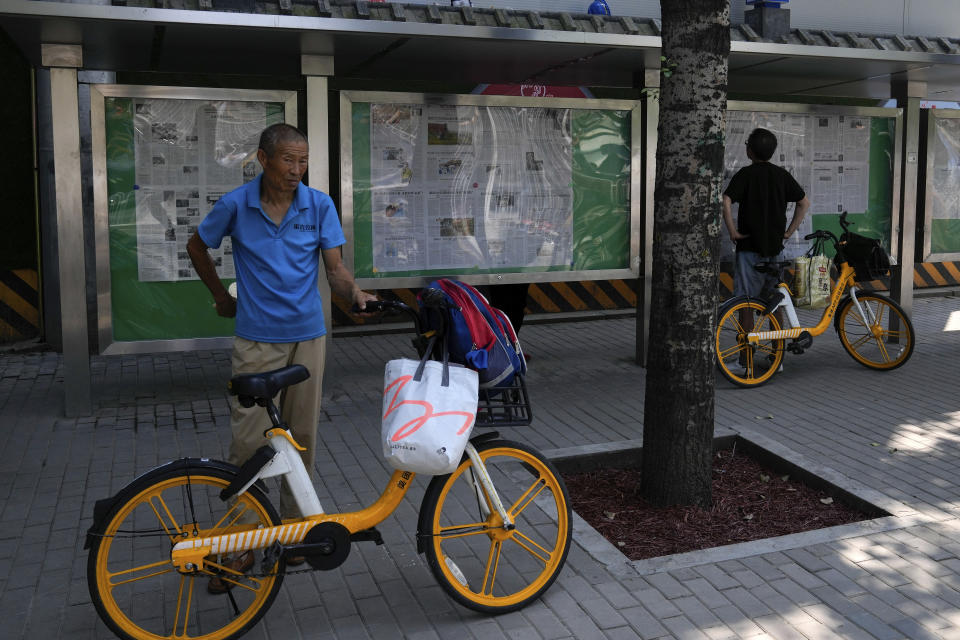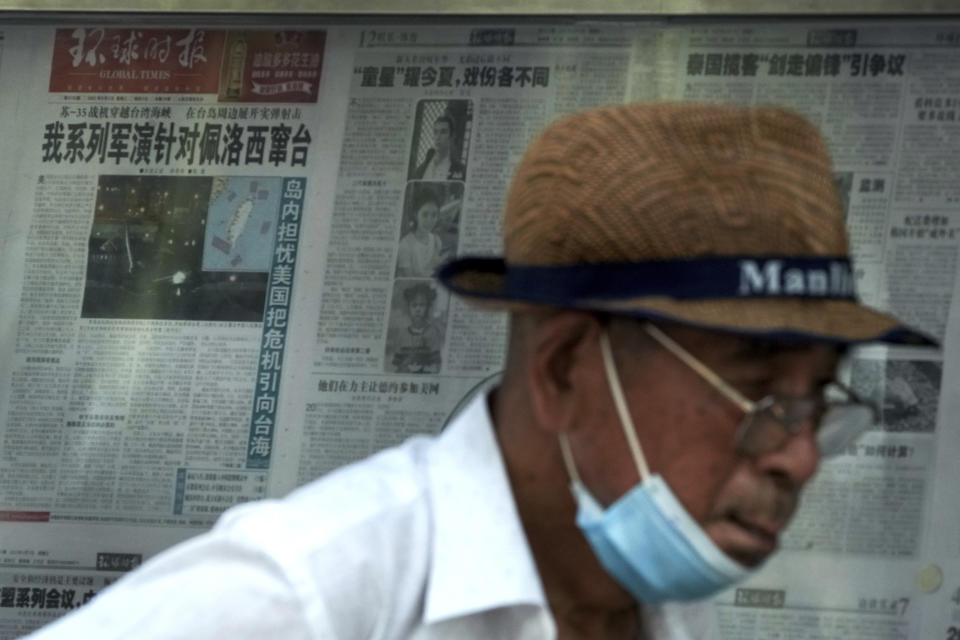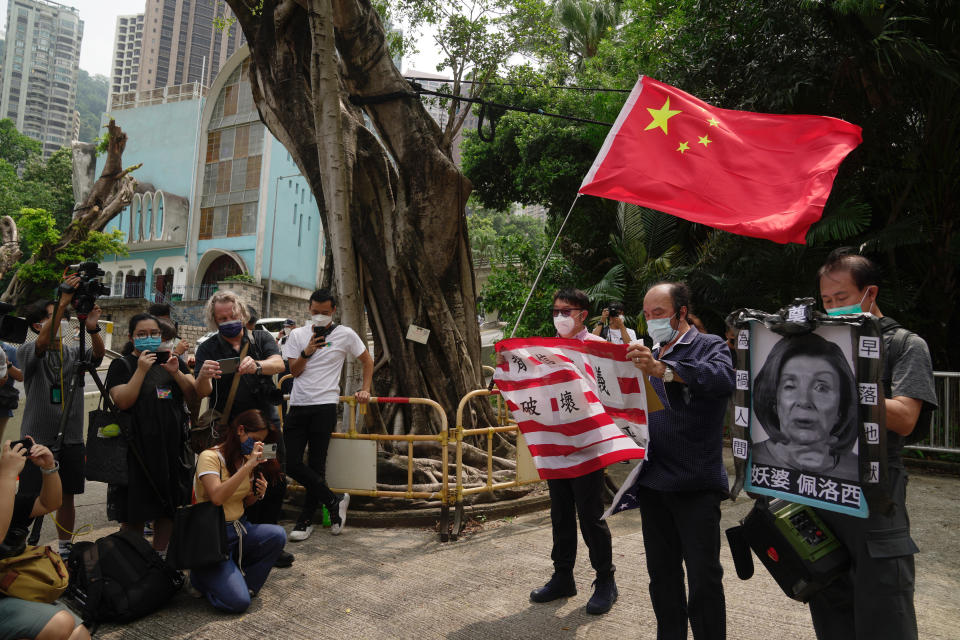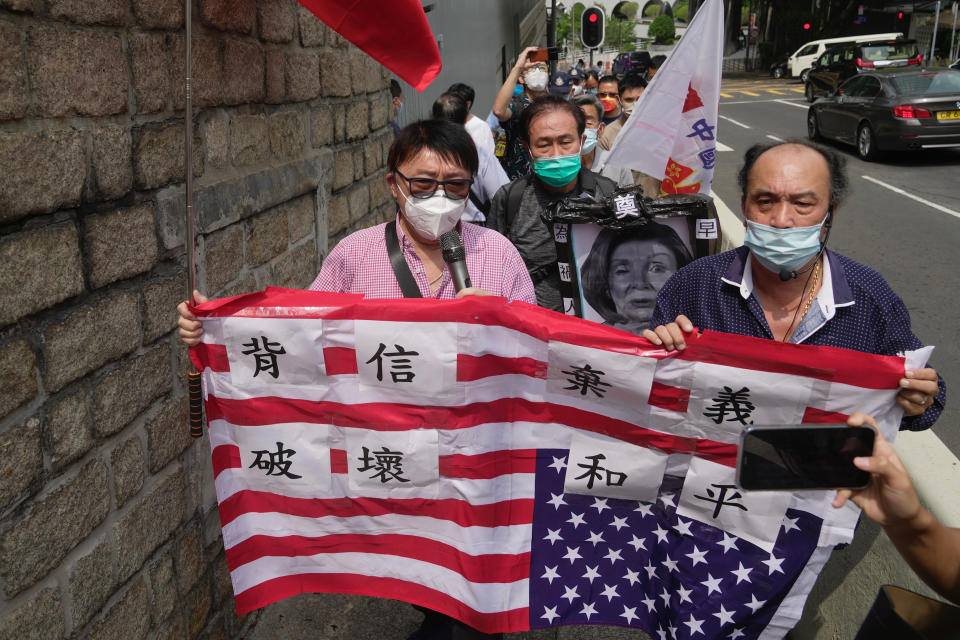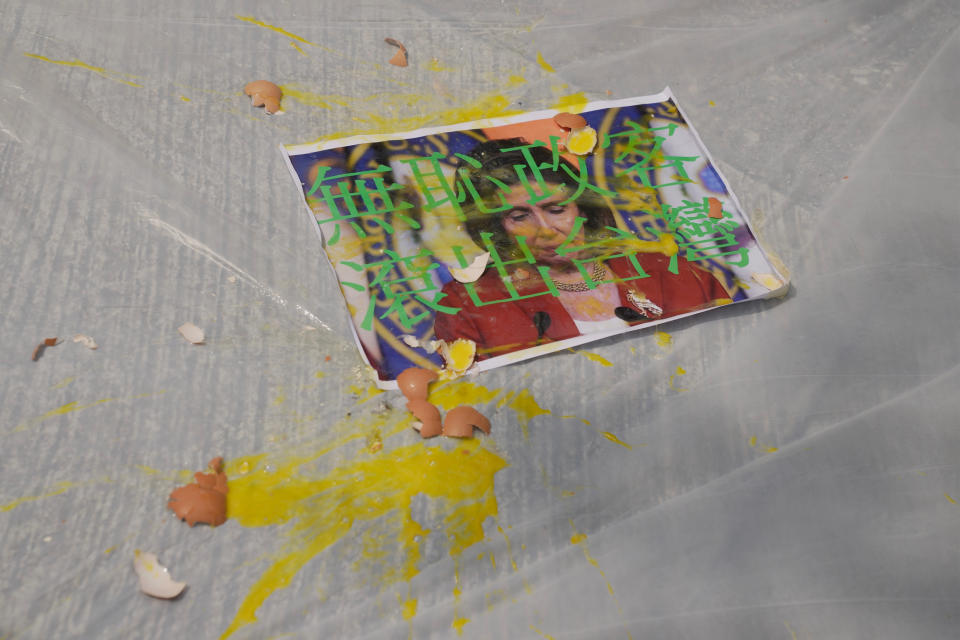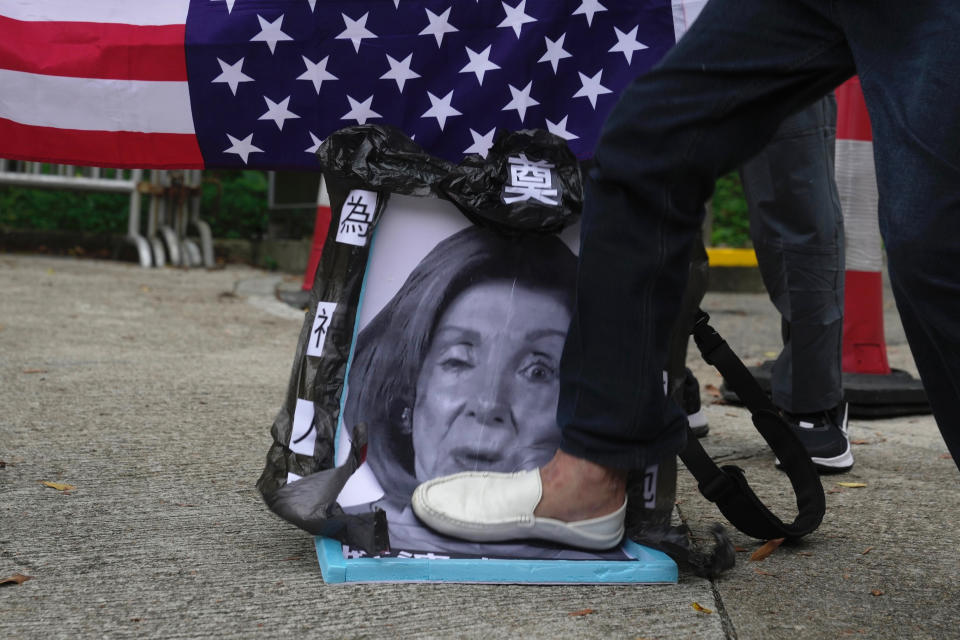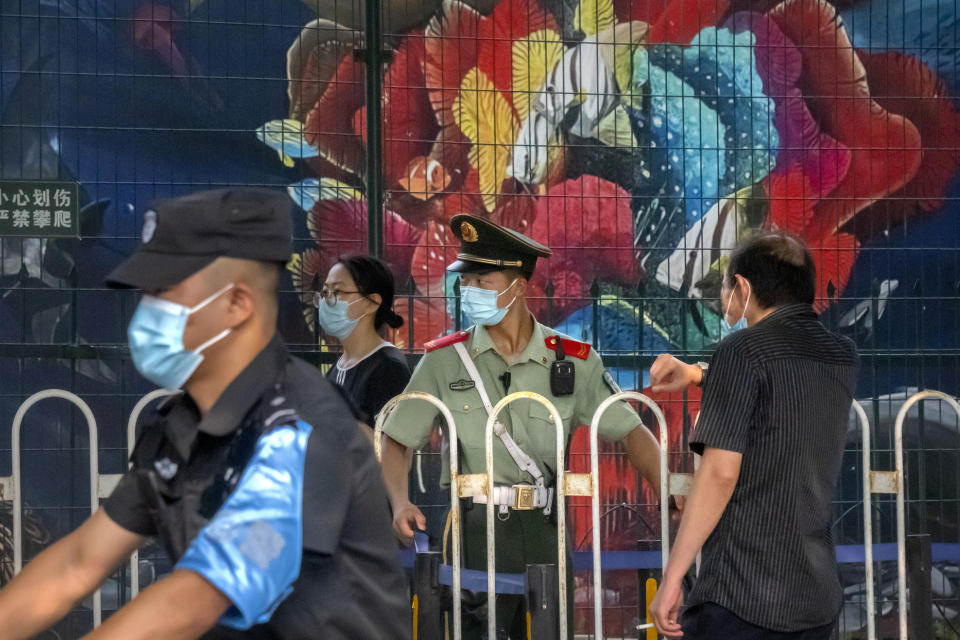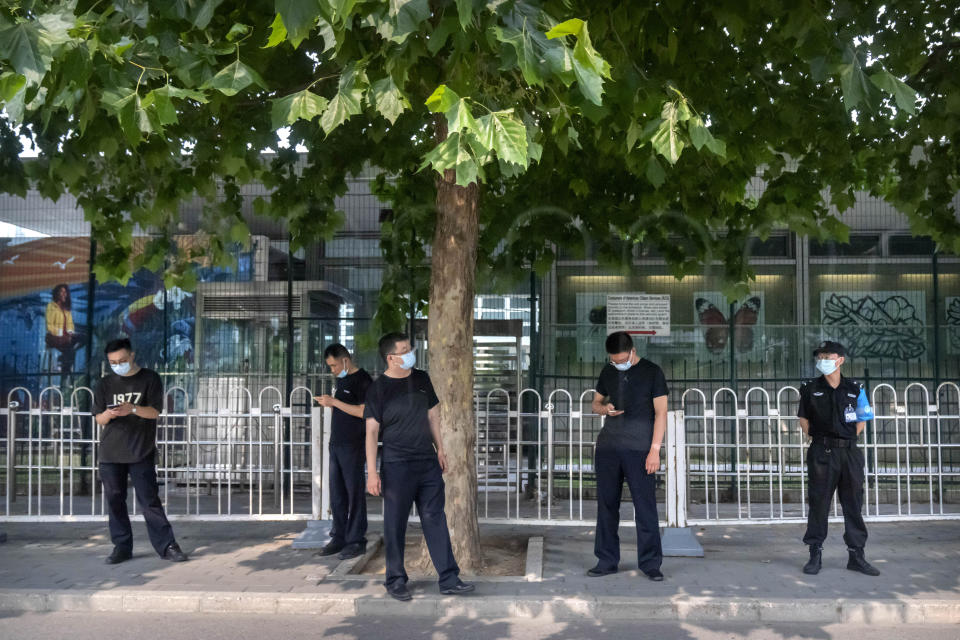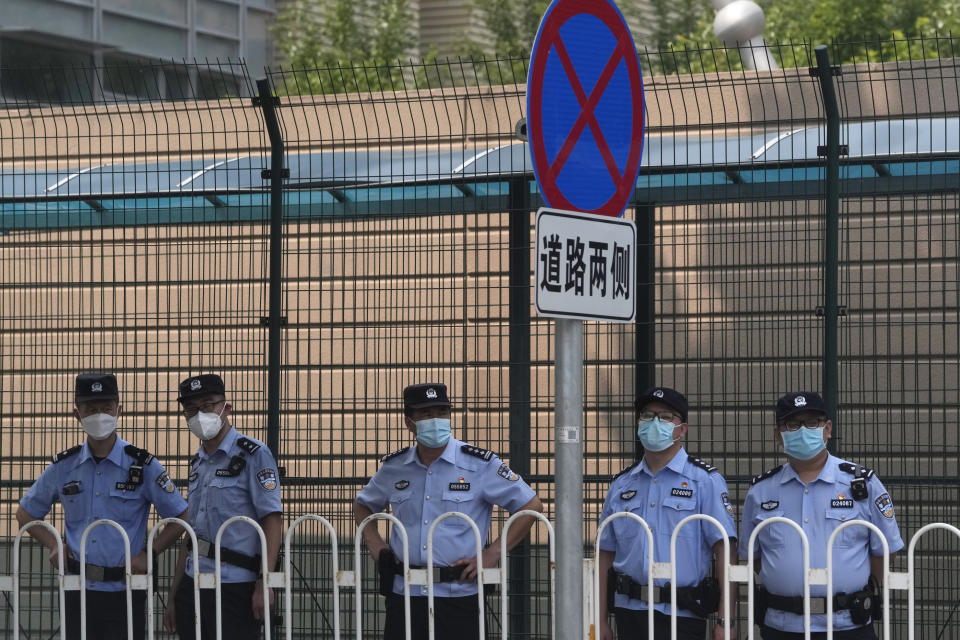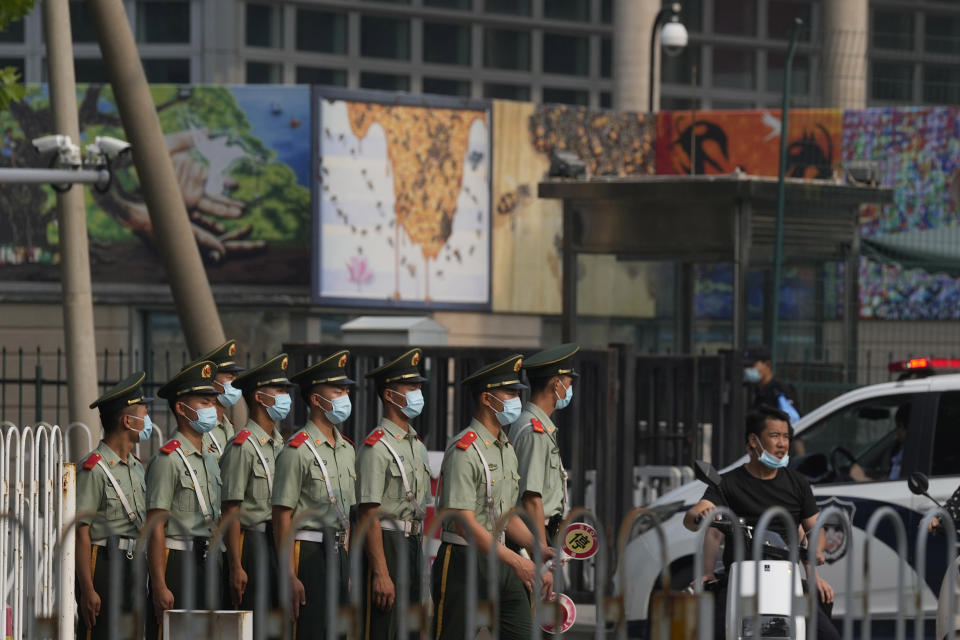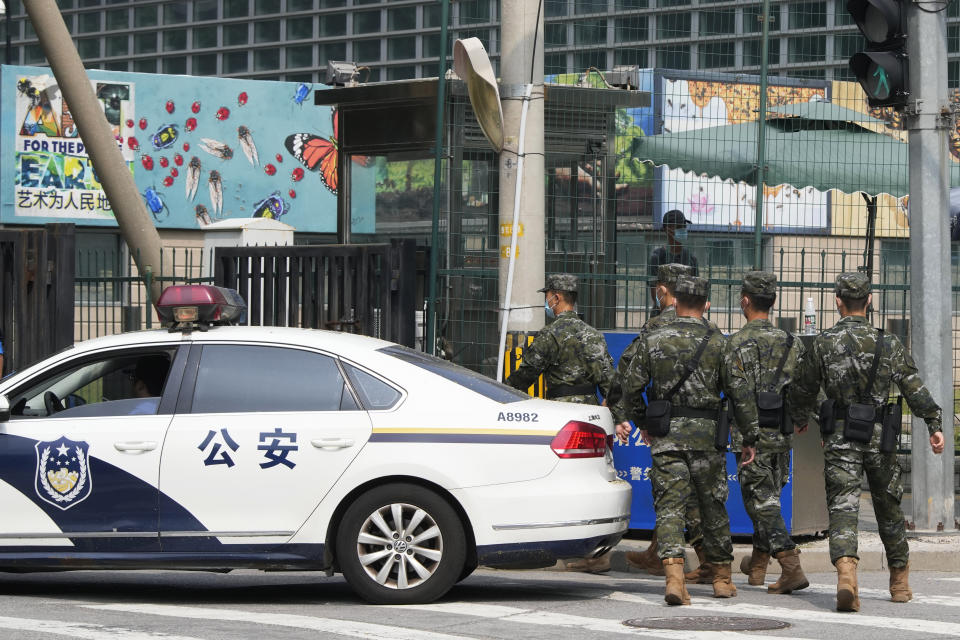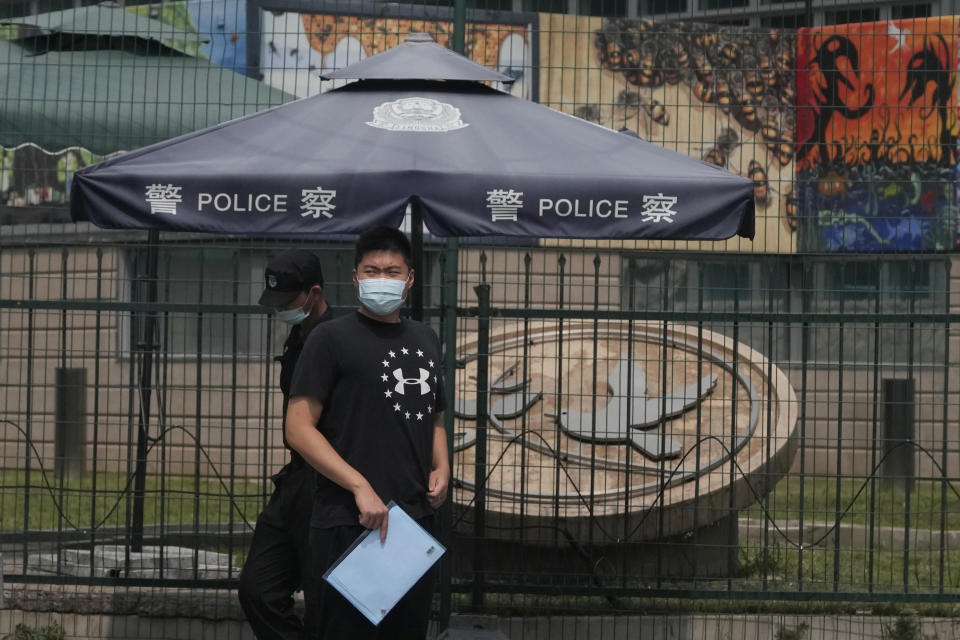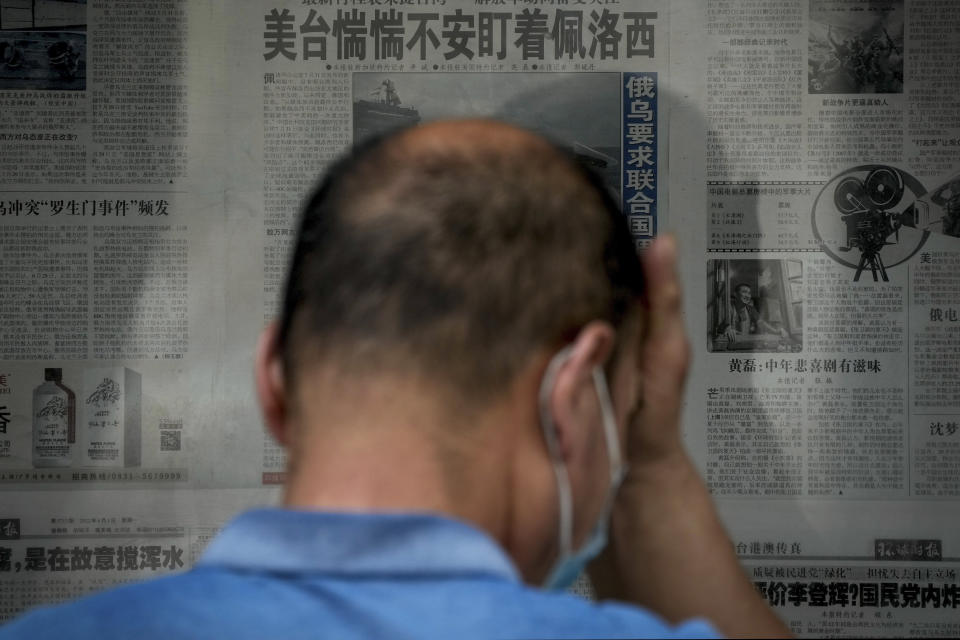Pelosi's Taiwan visit captivates public in China and Taiwan
BEIJING (AP) — A few Chinese old-timers read the pages of a newspaper on Wednesday hung up behind glass on an outdoor display board in a relic of pre-smartphone days, when that's how people in China got the news.
Wang Junzhong, 70, peered at an editorial in the Global Times, an outspoken, fiercely nationalistic voice of the ruling Communist Party. The headline read, “To safeguard national sovereignty and security, the Chinese military dares to show the spirit of the sword."
After weeks of threatening rhetoric, China showed the spirit but stopped short of any direct military confrontation with the U.S. over the visit to Taiwan of a senior American politician, House Speaker Nancy Pelosi.
Instead, it opted for military drills as a show of force, sending fighter jets into the air and scrambling crews on navy ships in simulated emergencies after Pelosi defied Chinese warnings and flew into Taiwan on a U.S. government plane on Tuesday night.
The failure to stop Pelosi from visiting Taiwan — a self-governing island that China claims as its territory — disappointed some Chinese who had been riled up by the government's tough words ahead of her trip. But Wang, in long sleeves and long pants despite the muggy weather, expressed understanding.
“If China didn't care about its people, it could just go ahead and use force," Wang said. "If China cares about its people, it’s fine to tolerate for now. There is not much we can do. I think the leaders are facing a dilemma.”
Bringing Taiwan, an island of 23 million people just 160 kilometers (100 miles) off China's east coast, under Chinese control is a longstanding goal of the Communist Party. Its leaders say that Taiwan is part of China and that the U.S. and other countries have no right to meddle in what it considers a domestic issue.
The U.S., under a one-China policy, doesn't recognize Taiwan as a nation but maintains informal relations and defense ties with its government — to China's displeasure. But China is loath to get into a war with the United States, even as it adds aircraft carriers and high-tech weaponry to its forces.
“This is for sure because China and the U.S. need each other in trade and other aspects," said Song Ao, a 21-year-old university student. "I think we must exert pressure in response to Pelosi’s Taiwan visit, but not fight.”
The Chinese military drills concerned both officials and some residents in Taipei, the Taiwanese capital. China said it had launched live-fire exercises on Tuesday night and announced drills starting Thursday in six offshore areas that a Taiwanese military official described as “sealing off Taiwan by air and sea.”
The drills may be routine but they are too close to Taiwan, said David Hong, a retired Taiwanese American financial consultant who was outside the legislature on Wednesday to try to catch a glimpse of Pelosi.
“It shows their ambitions,” he said. "We need to stop them. No more invasion.”
Crowds waited for Pelosi's arrival outside her hotel on Tuesday night, and some applauded as her motorcade, escorted by police cars with flashing lights, zipped by and entered an underground parking area.
Pan Kuan, a 30-year-old English teacher, said the U.S. House speaker showed courage by going ahead with her trip.
“Although there was a great pressure from China, she still chose the camp with democracy and freedom, and courageously came to Taiwan,” he said. "She is like a hero. She courageously fought China’s pressure. I think that takes some courage to do so.”
An almost equal-sized crowd of pro-Beijing protesters also gathered outside the Grand Hyatt hotel, cursing Pelosi and telling her to leave.
Supporters of Beijing also protested outside the U.S. Consulate in Hong Kong on Wednesday, holding up signs and ripping American flags in groups of four to abide by COVID-19 restrictions on public gatherings.
They shouted “Pelosi, get out of Taiwan,” “Destroying China-US relations” and other slogans and threw eggs at a photo of Pelosi.
There were no public protests in Beijing, where both plainclothes and uniformed security personnel were posted around the U.S. Embassy and the Foreign Ministry.
After seeing Pelosi's plane land, shown live by some Chinese digital news outlets, many in China rushed to the social media account of Foreign Ministry spokesperson Zhao Lijian — who had been issuing threats for days — to express disappointment that no strong action was taken to stop her. Others expressed support for the government's approach.
“They shouldn’t have talked big in the beginning,” Wang said. "If they had played it down, people wouldn’t feel repulsed. Because they gave away too much, it became difficult to wind up. After all, we didn’t want to use force when she came to visit.”
___
Associated Press video producer Olivia Zhang in Beijing and video journalists Taijing Wu in Taipei, Taiwan, and Katie Tam in Hong Kong contributed to this report.

 Yahoo News
Yahoo News 